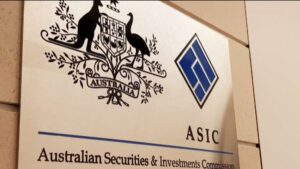A large part of ASIC’s role is to ensure that company directors comply with their duties at law and to the companies they lead.
Directors owe a range of duties to the company, including a duty to exercise their powers and duties with care and diligence, and a duty not to improperly use their position to gain an advantage. Directors also owe fiduciary duties.
If ASIC suspects that a director may have breached their duties, then ASIC may investigate and commence enforcement proceedings against the director.
Depending on the severity of alleged breaches, the relevant director of public prosecutions may also pursue directors.
Below are some examples of cases where ASIC has successfully prosecuted directors for breach of duties, and one case where the director of public prosecutions pursued a director.
DIRECTORS FOUND TO HAVE BREACHED SECTION 180 DUTIES
Australian Securities and Investments Commission v Cassimatis (No 8) [2016] FCA 1023
This case involved two directors of Storm Financial Limited (Storm), Mr and Mrs Cassimatis. Mr and Mrs Cassimatis were also 100% shareholders in Storm.
Storm had an AFSL, and operated by providing financial advice to investors, many of whom were vulnerable due to their age (usually retired, or close to retirement) and financial position (few assets other than their home, and little income). The content of Storm’s advice to these investors was that they should borrow against their unencumbered homes, and use the funds to invest in various structures, mostly shares. Those borrowed funds were also used to pay Storm’s fees.
Many of the investments failed, and Storm’s vulnerable clients were unable to retire, or forced to return to work, because they had to service the debts they had incurred when relying on Storm’s advice.
ASIC alleged that the directors had breached the duty to act with care and diligence, under section 180 of the Corporations Act 2001 (Cth)(s180), by causing or permitting Storm to give inappropriate advice to investors. ASIC alleged that the inappropriate advice caused Storm itself to breach certain provisions of the Corporations Act.
It is important to note that ASIC only alleged that Storm’s model was not viable insofar as it involved investors who fell within the vulnerable class described above. For other investors, for example, investors with high income, several assets, and who are younger so as to be able to recover from any loss, the model was viable.
The directors alleged that the investments only failed because of the GFC, and not because of the model adopted by Storm. Mr and Mrs Cassimatis also suggested that, in any event, because they were the only shareholders of Storm, they could not be liable for any breaches of s180.
The Court found that Mr and Mrs Cassimatis had breached their duties, because they caused or permitted inappropriate advice to be given by Storm. The Court found that the advice to the vulnerable investors was inappropriate for three reasons:
- Storm inappropriately classified the investors as ‘balanced investors’ in circumstances where the risk profile of the investors was actually more akin to conservative investors;
- Storm inappropriately treated an investor’s family home as an asset in the investment portfolio in circumstances where, if it had not been included, it would have been even more apparent that the investors were being inappropriately advised; and
- in any event, the advice was inappropriate because the circumstances of the relevant investors meant that the nature of the investment involved high risk.
Although this inappropriate advice caused a loss to be suffered by investors, and no loss was suffered by Storm as a result, the directors’ conduct still affected Storm’s interests so as to give rise to a breach of duty. The harm that Storm suffered was that it contravened certain provisions of the Corporations Act, making it liable to pay penalties and to be subject to regulatory proceedings. The Court found that this harm was reasonably foreseeable to any person in the directors’ position, acting reasonably.
Mr and Mrs Cassimatis argued that s180 does not apply where the directors are also the sole shareholders of the company. This argument was rejected by the Court on the basis that it was inconsistent with the section, because shareholders cannot ratify a breach of s180, and because there is a public interest in enforcing s180.
This case serves as an important reminder that although an investment model may be viable for some investors, it may not be viable for all investors, and if a company gives inappropriate advice, then the directors may be liable for a breach of duty, even if the company itself does not suffer any immediate financial detriment.
The case is also a good example of the true nature of duties under the Corporations Act, specifically, that they are both public and private in nature. That is, they are private duties in that they are owed to the company and its shareholders, but also public in that there is a public interest in ensuring that directors exercise their duties with care and skill.
AWB DIRECTOR FOUND TO HAVE BREACHED DUTY IN RELATION TO IRAQ WHEAT SCANDAL
Australian Securities and Investments Commission v Flugge & Anor [2016] VSC 779
This case involved the conduct of AWB officers that occurred around 2000, which many people will be familiar with, but the case did not finalise until the end of 2016.
ASIC alleged that Trevor Flugge, a director and the chairman of AWB, breached his duties under ss180 and 181 of the Corporations Act 2001 (Cth). The allegations against Flugge related to selling wheat to Iraq in a manner contrary to the relevant UN sanctions. The effect of the transactions was that the Iraq government was receiving more money than it was permitted to under UN sanctions.
ASIC alleged that Flugge took no steps, or no reasonable steps, to ensure that AWB did not engage in conduct that was contrary to UN sanctions. This included a failure to make enquiries about the requirements for selling and exporting wheat to Iraq, and a failure to ensure that he was informed of those matters.
After a 9 week trial, and a year to write the judgment, the Court found that s180 imposed a duty on Flugge to make the enquiries alleged by ASIC and, by failing to make those enquiries, Flugge breached the duty under s180. Flugge had no knowledge of the requirements for selling and exporting of wheat to Iraq, but by reason of his position as a director, and in the circumstances of the case, he was duty bound to make enquiries. Those enquiries would have revealed that the conduct was improper and ought not to be engaged in. Flugge’s breach caused harm to AWB, including a loss of approximately $781 million in market capitalisation, and significant damage to AWB’s reputation.
ASIC also alleged that Flugge had breached s181, which confers the duty for a director to act in good faith. ASIC suggested that Flugge acted dishonestly in that he was aware of the wrongdoing, and that it would cause substantial harm to AWB if it were ever revealed. The Court was not satisfied that Flugge knew of the wrongdoing, so ASIC’s claim in respect of s181 failed.
The proceedings also sought orders against another officer, Peter Geary. The allegations against Geary included the transactions with Iraq, and other transactions, but ASIC’s claim against Geary failed in its entirety because it had not proved that Geary was under a particular duty in many of the circumstances alleged, or that he had acted unreasonably.
The penalties payable by Flugge for his breaches have not yet been determined by the Court.
DIRECTOR JAILED FOR 10 YEARS
Commonwealth Director of Public Prosecutions v Sigalla [2017] NSWSC 52
In November 2016, Andrew Sigalla was convicted on 24 counts of dishonestly using his position as a director to gain a benefit for himself or a third party. This conduct was in breach of section 184 of the Corporations Act (Cth).
The charges related to transferring funds and shares from TZ Limited to himself or related parties, to the tune of circa $8.6 million, over approximately a 2 year period.
Mr Sigalla used most of the $8.6 million for his own benefit, to settle gambling debts with several bookmakers. Some of the money ($1.1 million) was for the benefit of an associate. Only $250,000 of the $8.6 million has been recovered.
In sentencing, the Court remarked that Mr Sigalla’s conduct had obviously harmed TZ Limited and its shareholders, but it had also harmed the investing public, because private investment in public companies is a significant aspect of the market economy, and when investors hear about conduct of this nature, they will be reticent to invest.
The Court also noted:
“The importance of safeguarding and restoring investor confidence in the ASX is a significant reason for criminalising the dishonest use of the position of a director and also bears on the sentences to be imposed.”
The maximum penalty for each of the 24 offences is five years’ imprisonment.
The Court imposed a sentence of 10 years imprisonment, with a non-parole period of six years. Although the sum of money in question was a relevant factor, the severity of the sentence demonstrates how seriously the Court will take deliberate acts of deception and greed.
For more information, please contact Laura Gercken or Ashley Hill.






